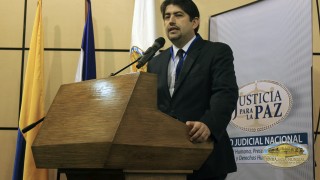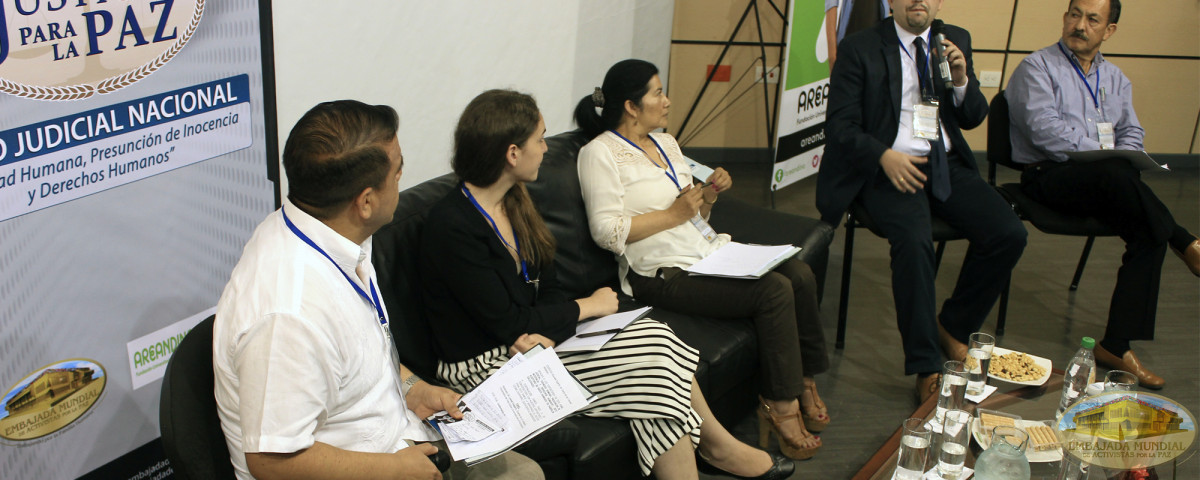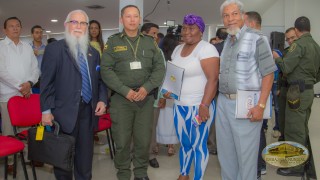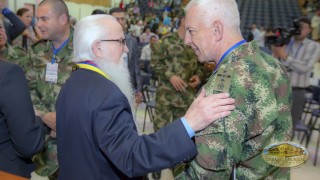Projection of Transitional Justice for a Peaceful Colombia in the Forum "Human Dignity, Presumption of Innocence and Human Rights"
In the process of Colombian peace, transitional justice plays a very important role.
The Global Embassy of Activists for Peace (GEAP), carried out the Forum “Human Dignity, Presumption of Innocence and Human Rights,” in association with the Rights Program of the Fundacion Universitaria del Area Andina, May 5th of the present year, in the Pablo Oliveros Marmolejo Auditorium, in the city of Valledupar.
This event is part of the thematic lines under the Program “Justice for Peace,” which aims to generate constructive critical thinking around national and international criminal policy regarding genocide as a capital crime.
With more than 200 attendees, including students from the Universidad del Area Andina, lawyers, professionals from different disciplines, personnel from the public force, members of the Victims Unit and the Mayor of Valledupar; they were welcomed by Dr. Gustavo Bandera Galindo, director of the Law Program of the University Foundation, and Emira Herrera Paez, regional coordinator of the Program “Justice for Peace” of the GEAP.

Within the Forum was the participation of the researcher Dr. Mario Alvarado Lozano, who emphasized the importance of normative identity and Criminal Law in the social context and transitional justice, establishing possible ways to reach peace and justice.
For her part, Dr. Maria Cielo Linares, an advisor to the Constitutional Court and the Attorney General, gave a holistic look at the conflict in Colombia, emphasizing the importance of historical memory.
In her speech, Dr. Edilma Arteaga Ramirez, Judge to the Administrative Chamber of the Sectional Council of the Cesar Judiciary, addressed the issue of women and transitional justice, pointing out the urgency of visualizing the victim's’ position.
Also, Colonel Pedro Hernandez Pulido, in his speech emphasized the work of the National Army within the war and the conflict, and the importance of peace:
“We are linked to the peace process with everything we have, best intentions and with the determination that peace is the dream that we all want.”
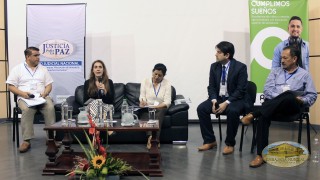
At the end of this activity, the panel responded to the question about what characteristics transitional justice should be in the context of the Colombian post-conflict, to which Dr. Cielo Linares said:
“The most important thing is memory, the victims and what they have to tell us.”
Dr. Mario Alvarado believes that, furthermore, it is necessary to include the element of publicity within the agreements that intend to provide transitional justice. Finally, Colonel Pedro Hernández believes that the issue of the courts must be well defined, international agreements must be respected and that there must be verification of what is agreed upon rather than a signature on paper.
In conclusion, building a good historical memory is the starting point for an excellent peace agreement, based on justice, truth, reparation and non-repetition.
